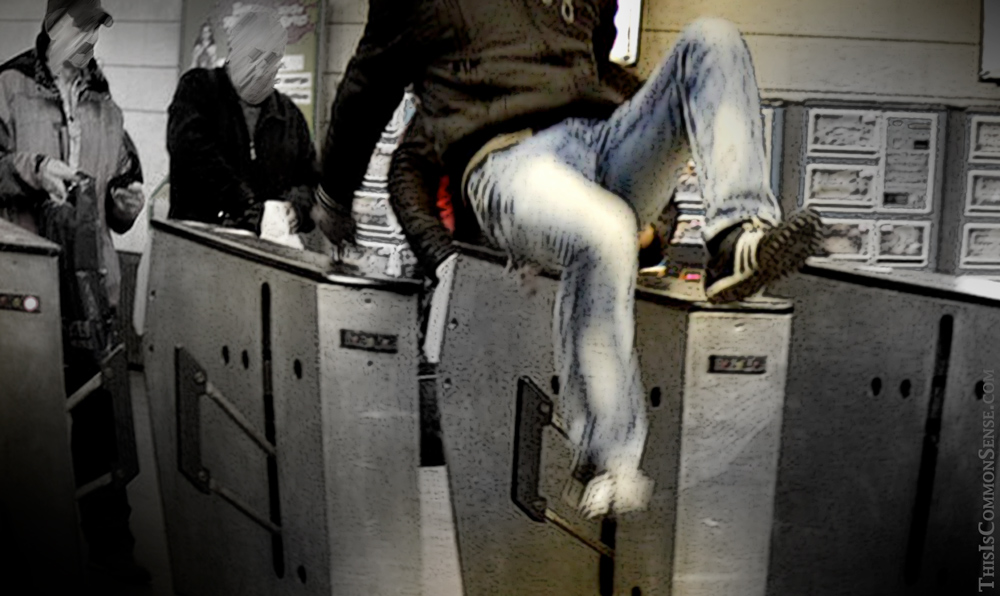“The D.C. Council gave final approval this week to a measure decriminalizing Metro fare evasion,” The Washington Post reports, “paving the way for fare-jumping to become a civil offense punishable by a $50 fine in the District.”
Talk about stopping crime “in its tracks.” Jumping the turnstile won’t be classified a “crime.” Problem solved.
Nassim Moshiree, policy director for the local ACLU, declared it “a significant victory for criminal justice reform here in the District.”
Jack Evans argued, unsuccessfully, that scofflaws will quickly figure out the “civil citation . . . is largely unenforceable.” He added, “We have a big problem with fare evasion at Metro.”
Non-paying riders cost the bus and subway system in the nation’s capital $25 million annually. The worst bus route “has had 560,000 incidents of fare evasion since January, nearly 37 percent of its 1.5 million trips,” informs the Post.
Metro officials complained “that lessening the penalties would only exacerbate the problem and lead to more crime,” but supporters of the change posited that “decriminalization was an important step toward addressing disproportionate policing of African Americans who use the transit system.”
In recent years, according to a Washington Lawyers’ Committee for Civil Rights and Urban Affairs report, “91 percent of Metro Transit Police citations and summons for fare evasion were issued to African Americans.”
“I’m sad that’s Metro’s losing money,” offered Councilmember Robert White Jr., “but I’m more sad about what’s happening to black people.”*
Penalties can be too severe or too severely applied. And enforcement can be racially biased. But stealing transportation services is a crime. Pretending otherwise is not a victory.
This is Common Sense. I’m Paul Jacob.
* Is “that’s” a typo? Did the councilmember say, “that”? All I know is the quotation as I have it here is exactly as it appears online, in both text and headline, and also as it appeared in the dead-tree edition delivered to my home.
» See popular posts from Common Sense with Paul Jacob HERE.


1 reply on “Reforming Crime, Not Criminals?”
“stealing transportation services is a crime”
Well, yes, it is.
But reclaiming stolen wealth isn’t.
The DC Metro service is financed by appropriations from the Maryland, Virginia, and DC governments. But of course “appropriations” should read “expropriations.” These governments extort (“tax”) money from the population, build and operate the Metro service with the stolen money, then attempt to recover their “investment” of stolen wealth with additionally extorted fares (for FY2019, the “farebox recovery ratio” is projected to be 62% of operating expenses).
Nobody who pays taxes in those three jurisdictions should pay the fares if they can possibly get away with not paying. They already paid, unwillingly for the tracks, the trains, and the Metro employees’ paychecks. Jumping the turnstile is just clawing back some of what was stolen from them. Out-of-towners should just jump the turnstile as well, then hand the fare equivalent to the first area taxpayer they happen to meet.